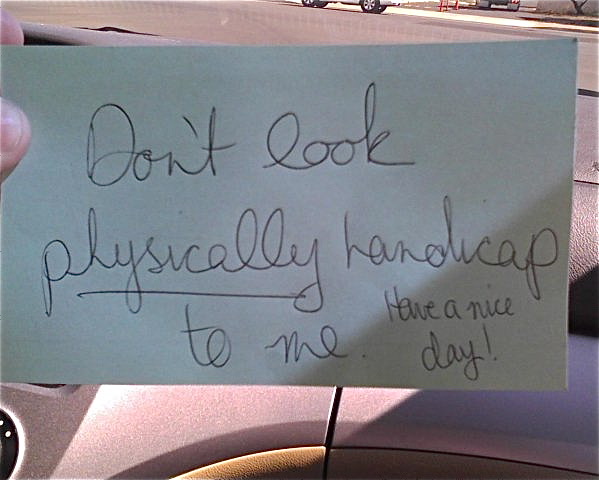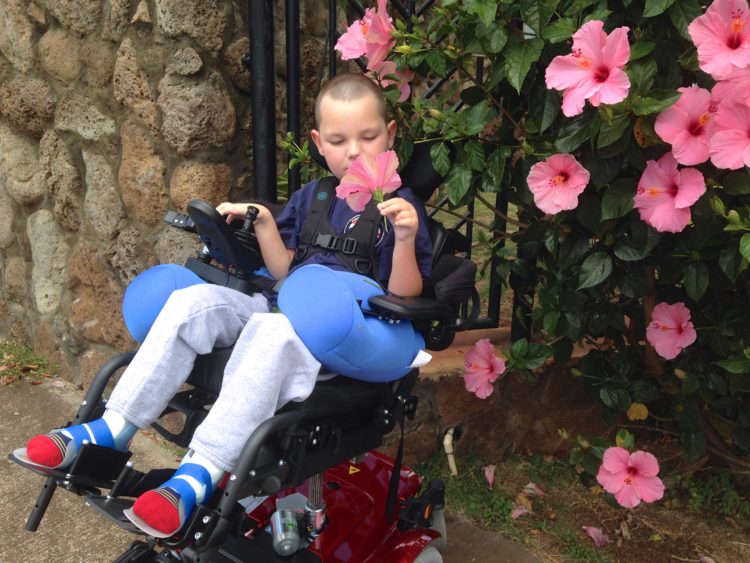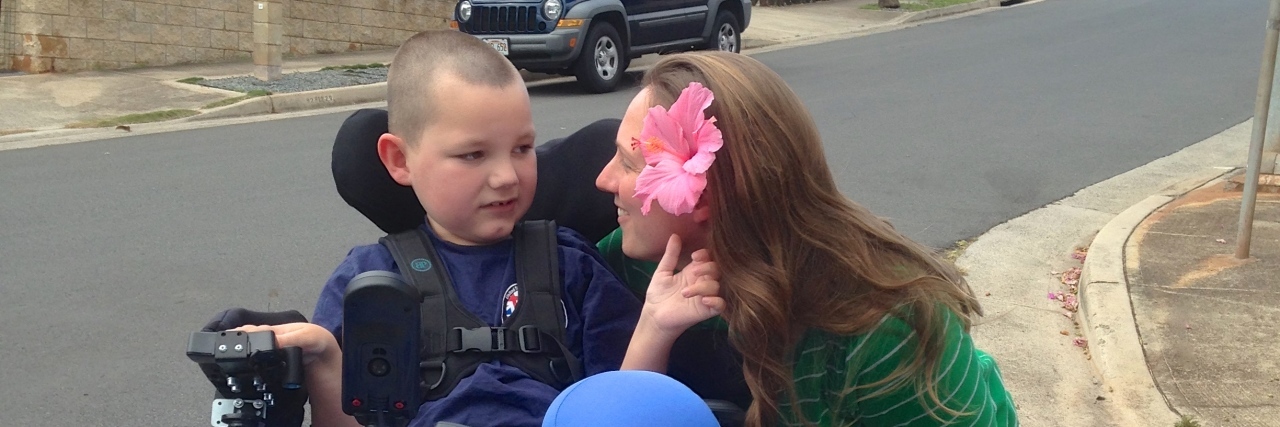“Your retarded boy is lucky that you don’t put him away [in an institution]. That’s what they do in my country.”
Shocked speechless by the comment and unsure if it was supposed to be a compliment or not, all I could do was stare after the elderly man as he got up and walked away from the bench we had been sitting on, side by side.
That was my first encounter with someone that viewed disability as a shameful disgrace that needed to be hidden from polite society, but sadly, it was far from my last.
Living on an island, far away from home, made me have to reach out to other military spouses for support after my son’s diagnosis. Unfortunately, when the rubber met the road, and I took people up on their offers of help, I discovered that most people we knew were afraid to get involved.
One friend in particular flat out told me, “Your life is too sad. I cannot be friends with you anymore.” I appreciated her honesty, even though it hurt because I would have been even more devastated if she would have disappeared from my life without an explanation.
However, I cannot help but wonder how different our relationship would have turned out if she had taken the time to learn that regardless of my son’s visible disability, he was still a normal kid on the inside. My son has the same hopes and dreams as other little boys his age and is worth getting to know as a person.
Over the years, I have had multiple disturbing run-ins with people who were afraid of, didn’t understand, or were unable to recognize disability. For instance, once, I had an angry note left on the windshield of my van stating, “Don’t look physically handicap to me. Have a nice day!”
I couldn’t help but burst into tears when I read those words.

The person that watched me lift my terminally ill and completely disabled child out of the vehicle parked in the accessible parking spot overlooked an important detail that day. I was strapping my son into an adaptive stroller (i.e., a wheelchair) when children his age usually walked independently — I guess they didn’t know that kids could be disabled too.
Likewise, strangers have had no qualms stopping me while shopping to tell me that my son was too old to be in a “stroller” and that I should not encourage his laziness. Little did they know that my son would like nothing better than to walk on his own, but that’s wasn’t possible no matter how many times people reprimanded him or scolded me.
Even well-meaning church members have not hesitated to dish out painful and unsolicited advice like, “If you believed enough, then your son would be healed” without considering for a second the mental or spiritual damage that those words could cause.
There is nothing wrong with my faith. If I did not have the hope that Christ offers, then I would have become lost in grief a long time ago. However, I know that sometimes bad things happen to good people, even kids, and not everything can be prayed away. Also, “No” is an answer too. I think people forget that fact.
Now that my son is older and his physical disabilities are more pronounced, the number of harsh parenting critiques I get has lessened significantly. Unfortunately, people have switched gears and gone the opposite route by choosing to avoid looking at or talking to my son or me instead.
Why? Why do people’s responses to disability have to be so unpleasant and extreme? Why is society, to include the military population, repulsed by or ashamed of people with disabilities? Also, how do we change that?
I think the answer is simple — exposure.

People only know what they know. They cannot grow as individuals or gain new perspectives if they are never introduced to topics that make them think. As such, I have made it a personal goal to help destigmatize disability by talking about it with people of all ages, whether verbally or through my writings.
Speaking of advocating for the disability community, I like to use opportunities like Rare Disease Day (which takes place on the last day of February each year) to raise awareness about conditions that most people have never heard about, like my son’s condition, spinal muscular atrophy.
Unique calendar events like Rare Disease Day allow me and others like me that are involved in the disability community to initiate conversations that will hopefully positively impact the hearts and minds of those that hear our words.
I want to appeal to anyone else directly or indirectly associated with the disability community to use opportunities like Rare Disease Day to do the same.
Do not be afraid to speak up and share your stories. The only way to change the narrative that disability is ugly is to show your friends, family, or strangers how it can be beautiful, too, despite the challenges.
Silence breeds shame; let’s stop shame from spreading and infecting the next generation by doing our part as fellow human beings to support the inclusion and acceptance of people with disabilities or rare conditions across every spectrum of life.

